Discover the Women of the Hall
These are the Inductees of the National Women’s Hall of Fame. Select any of the women to discover their stories and learn how they have influenced other women and this country.
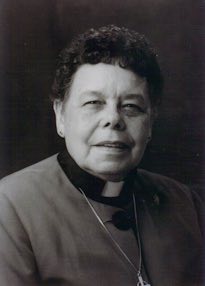 Leontine T.C. Kelly
Humanities
1920
District of Columbia
2000
Leontine T.C. Kelly
Humanities
1920
District of Columbia
2000

Leontine T.C. Kelly
A Methodist bishop, Leontine T.C. Kelly was the first African American woman to be elected bishop in the United Methodist Church. She served as bishop of the California-Nevada Annual Conference and the president of the Western Jurisdiction College of Bishops. Committed to peace and justice, she was arrested several times for protesting nuclear weapons, and was one of 18 bishops who signed a letter to the Methodist Church in response to its policy toward gays and lesbians in the church.
 Ida Tarbell
Arts
1857
Pennsylvania
2000
Ida Tarbell
Arts
1857
Pennsylvania
2000

Ida Tarbell
Writer and editor, her expose of the Standard Oil Trust in the 1904 publication The History of the Standard Oil Company prompted the federal government to prosecute and break up Standard Oil for anti-trust violations. She founded the American Magazin, authored several biographies, and, in spite of her 1912 anti-feminist book, The Business of Being a Woman, remains a role model for women and men in journalism.
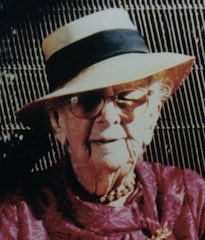 Marjory Stoneman Douglas
Science
1890
Minnesota
2000
Marjory Stoneman Douglas
Science
1890
Minnesota
2000

Marjory Stoneman Douglas
A journalist with the Miami News Record, she was an active leader in the Florida suffrage movement and an environmentalist credited with saving the Everglades as a national resource. Douglas authored over ten books and several plays, including The Everglades: River of Grass. After receiving the Presidential Medal of Freedom in 1993 at the age of 103, she remained an active and influential environmentalist to her death.
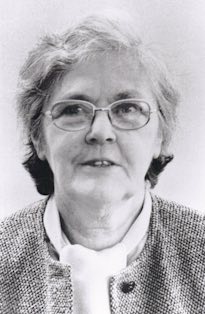 Frances Oldham Kelsey
Science
1914
Canada
2000
Frances Oldham Kelsey
Science
1914
Canada
2000

Frances Oldham Kelsey
A medical and pharmaceutical researcher for the Food and Drug Administration, she refused to approve the use of thalidomide in this country, saving countless babies from terrible deformities. As a result of her testimony before Congress, the 1962 drug act was passed, giving the FDA greater control over the manufacture, testing and distribution of drugs. During a career with the FDA which spanned over 39 years, her supervision of clinical investigators has institutionalized the protection of the patient in drug investigations.
 Eudora Welty
Arts
1909
Mississippi
2000
Eudora Welty
Arts
1909
Mississippi
2000

Eudora Welty
One of the most significant writers of the 20th century, Eudora Welty won many notable literary prizes, including the Pulitzer Prize for her novel The Optimist’s Daughter. Her work is marked by what critic Jonathan Yardley called an “abiding tolerance…a refusal to pass judgment on the actors in the human comedy,” and it transcends generations and national boundaries. In 1998, the Library of America recognized her literary accomplishments by honoring her as the first living author published in the prestigious Library of America series.
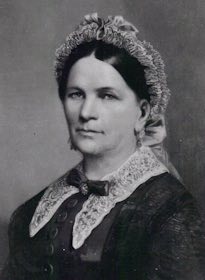 Sophia Smith
Education, Philanthropy
1796
Massachusetts
2000
Sophia Smith
Education, Philanthropy
1796
Massachusetts
2000

Sophia Smith
Born to a family known for its frugality and thrift, she was left at the age of 65 as the sole survivor of her immediate family, and with the funds to endow the establishment of Smith College, an institution that she hoped would provide undergraduate education for young women equal to that provided at the time for young men.
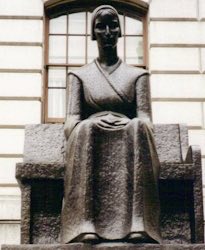 Mary Barret Dyer
Humanities
0
England
2000
Mary Barret Dyer
Humanities
0
England
2000

Mary Barret Dyer
Disenfranchised and banished from the Massachusetts Bay Colony along with Anne Hutchinson, she moved back to England, where she became a protégé of George Fox, the founder of Quakerism. Returning to Boston, she was arrested, imprisoned and expelled for preaching the Quaker faith. Returning to Boston again and again, she stood beside other condemned Quakers and finally was herself arrested and hanged. Her martyr’s death contributed to the move for religious tolerance in the colonies.
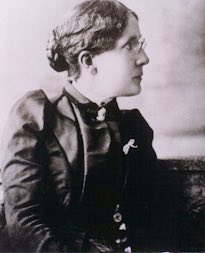 Frances E. Willard
Humanities
1839
New York
2000
Frances E. Willard
Humanities
1839
New York
2000

Frances E. Willard
As second president of the Women’s Christian Temperance Union (WCTU), she led the largest organization of women in the United States. The WCTU provided a base for the 20th century women’s rights movement, supporting, in addition to women’s suffrage, broad social reforms such as equal pay for equal work, the eight hour day, and the protection of women and children in the workplace.
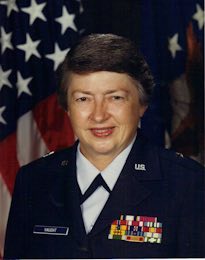 Wilma L. Vaught
Government
1930
Illinois
2000
Wilma L. Vaught
Government
1930
Illinois
2000

Wilma L. Vaught
One of the most decorated military women in U.S. history, Brigadier General Vaught, USAF, Retired, broke through many gender barriers to achieve a series of “firsts” that paved the way for military women serving today. She may be best known and most revered for her 12-year quest to permanently honor women in the military, raising over $45 million to build a major national memorial. The stunning 33,000 sq. ft. Women in Military Service for America Memorial facility and education center stands today at the gateway to Arlington National Cemetery.
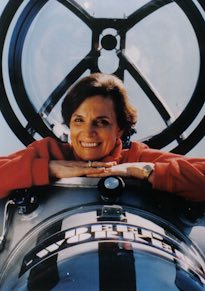 Sylvia A. Earle
Science
1935
New Jersey
2000
Sylvia A. Earle
Science
1935
New Jersey
2000

Sylvia A. Earle
An undersea explorer since age 13, Earle became an internationally recognized marine biologist, author, lecturer and scientific consultant. Denied the opportunity to participate in the U.S. Navy “Tektite Project” to study the ocean, she founded “Tektite II”, an all-female expedition that spent two weeks exploring the ocean floor. The founder of two companies to design and build undersea vehicles, she is chief scientist and consultant to oceanographic and marine research centers throughout the world.
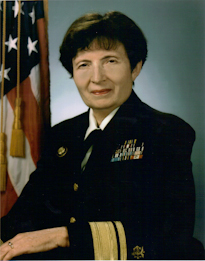 Faye Glenn Abdellah
Science
1919
New York
2000
Faye Glenn Abdellah
Science
1919
New York
2000

Faye Glenn Abdellah
First nurse to hold the rank of Rear Admiral and the title of Deputy Surgeon General for the United States. She developed the first tested coronary care unit. A national pioneer in nursing research, she has authored or co-authored more than 150 publications and helped change the focus of nursing from disease-centered to patient-centered.
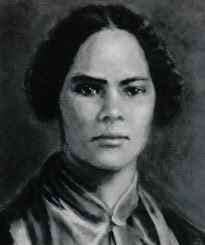 Mary Ann Shadd Cary
Humanities
1823
Delaware
1998
Mary Ann Shadd Cary
Humanities
1823
Delaware
1998

Mary Ann Shadd Cary
An educator and abolitionist, Mary Ann Shadd Cary was the first Black American woman to enroll in and graduate from Howard University Law School. She appeared before the House Judiciary Committee to argue for the right of women to vote (with Anthony and Stanton). During the 1870s, while practicing law, she lectured throughout the United States about the improvement of education for Black Americans.
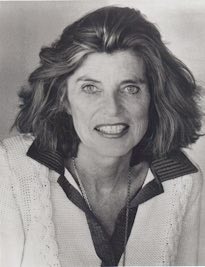 Eunice Kennedy Shriver
Humanities
1921
Massachusetts
1998
Eunice Kennedy Shriver
Humanities
1921
Massachusetts
1998

Eunice Kennedy Shriver
For more than thirty years, Eunice Kennedy Shriver served as a leader in the worldwide struggle to enhance the lives of people with intellectual disabilities. Under her leadership, the Joseph P. Kennedy, Jr. Foundation aided in the creation of The President’s Committee on Mental Retardation (1961) and the development of the National Institute for Child Health and Human Development (1962). Shriver is credited as the founder of the Special Olympics, an organization that today serves 3 million people with intellectual disabilities in nearly 200 nations around the world.
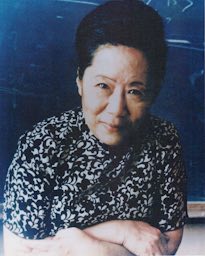 Chien-Shiung Wu
Science
1912
China
1998
Chien-Shiung Wu
Science
1912
China
1998

Chien-Shiung Wu
Nuclear physicist whose pioneering work altered modern physical theory and changed the accepted view of the structure of the universe.
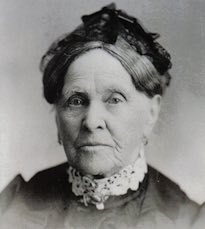 Lydia Moss Bradley
Business, Philanthropy
1816
Indiana
1998
Lydia Moss Bradley
Business, Philanthropy
1816
Indiana
1998

Lydia Moss Bradley
Educator, founder of Bradley University and coeducation advocate. Bradley was a pioneer in business and education, the first female member of a national bank board in the United States. Noted as a philanthropist who financially supported many social causes, she determined that Bradley University would be for both women and men.
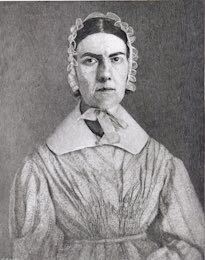 Angelina Grimké Weld
Humanities
1805
South Carolina
1998
Angelina Grimké Weld
Humanities
1805
South Carolina
1998

Angelina Grimké Weld
Along with Sarah Grimké, wrote numerous published papers which championed abolition and women’s rights. The Grimké sisters were southerners who became the first female speakers for the American Anti-Slavery Society. Sarah’s Letters on the Equality of the Sexes exposed the plight of factory women in New England, as well as arguing on behalf of women’s rights and abolition. Through their examples and their words, the Grimkés proved that women could affect the course of political events and have a far-reaching influence on society.
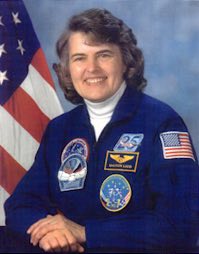 Shannon W. Lucid
Science
1943
1998
Shannon W. Lucid
Science
1943
1998

Shannon W. Lucid
A commercial, instrumental and multi-engine-rated pilot, Dr. Shannon Lucid was a member of the first astronaut class to admit women (1979). In her more than 30 year tenure with NASA, she served in various capacities and participated in five space flights. Dr. Lucid was the first woman to hold an international record for the most flight hours in orbit by any non-Russian, and, until June 2007, she held the record for the most flight hours in orbit by any woman in the world – 5,354 hours or 223 days in space.
 Julia Ward Howe
Humanities
1819
New York
1998
Julia Ward Howe
Humanities
1819
New York
1998

Julia Ward Howe
Suffragist and author of “Battle Hymn of the Republic.” Howe was a lecturer on religious subjects, a playwright and an organizer of a women’s peace movement. Co-founder (with Lucy Stone et al) of the New England Women Suffrage Association, she lectured and wrote extensively in support of the freedom of women to have an equal place with men in both public and private life.
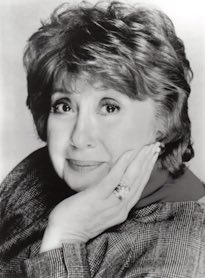 Beverly Sills
Arts
1929
New York
1998
Beverly Sills
Arts
1929
New York
1998

Beverly Sills
Acclaimed Soprano who became the first woman General Director and then President of the New York City Opera, and later first woman chair of the Lincoln Center for the Performing Arts, guiding the Center to become one of the nation’s most important institutions. She was not only directly responsible for the discovery and launch of many young performers, but was also actively involved in a myriad of humane works, including the National Victim Center and (as National Chair) the March of Dimes Mothers March on Birth Defects.
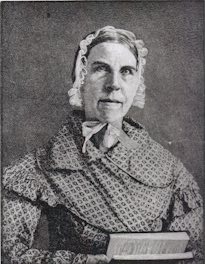 Sarah Grimké
Humanities
1792
South Carolina
1998
Sarah Grimké
Humanities
1792
South Carolina
1998

Sarah Grimké
Along with Angelina Grimké Weld, who wrote numerous published papers which championed abolition and women’s rights. The Grimké sisters were southerners who became the first female speakers for the American Anti-Slavery Society. Sarah’s Letters on the Equality of the Sexes exposed the plight of factory women in New England, as well as arguing on behalf of women’s rights and abolition. Through their examples and their words, the Grimkés proved that women could affect the course of political events and have a far-reaching influence on society.
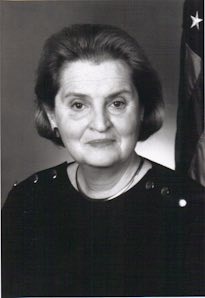 Madeleine Korbel Albright
Government
1937
Czechoslovakia
1998
Madeleine Korbel Albright
Government
1937
Czechoslovakia
1998

Madeleine Korbel Albright
First female Secretary of State and highest ranking woman in the U.S. government under President Clinton. As a professor at Georgetown University, she taught undergraduate and graduate courses in international affairs and Russian and Central and Eastern European politics. In President Clinton’s first term, she was the U.S. Permanent Representative to the United Nations and a member of the National Security Council.
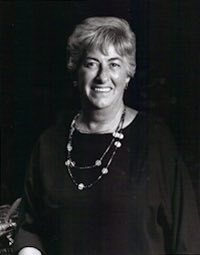 Rozanne L. Ridgway
Government
1935
Minnesota
1998
Rozanne L. Ridgway
Government
1935
Minnesota
1998

Rozanne L. Ridgway
Foreign policy advisor under six consecutive U.S. presidents from Richard Nixon to William Clinton. Beginning in 1975, she served as Deputy Assistant Secretary of State; her last appointment was Assistant Secretary of State for European and Canadian Affairs. A former Chair of the Atlantic Council of the U.S., a foreign policy think tank, her work has spanned almost four decades.
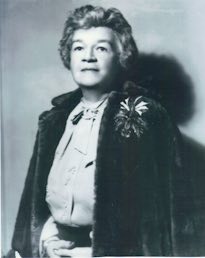 Edith Nourse Rogers
Government
1881
Maine
1998
Edith Nourse Rogers
Government
1881
Maine
1998

Edith Nourse Rogers
Massachusetts Congresswoman who introduced the “G.I. Bill of Rights” Act and Women’s Army Auxiliary Corp (WAC) legislation. The “Bill of Rights” guaranteed veterans’ health and education benefits (also small business loans). In addition, it supported research and development of prosthetic appliances. Rogers pushed for equality for women in and out of military until her death.
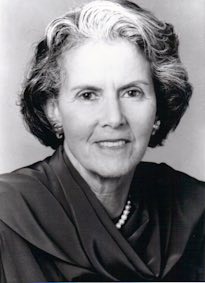 Felice N. Schwartz
Business
1925
New York
1998
Felice N. Schwartz
Business
1925
New York
1998

Felice N. Schwartz
Founder in 1962 of Catalyst, the premier organization working with corporations to foster women’s leadership. She published studies (Women in Corporate Leadership in 1990 and Women in Engineering in 1992) illustrating the barriers to women’s workplace progress and then provided samples of model corporate practices to help women advance. Her work has had a lasting impact on the composition of American corporate leadership.
